-
Administrator

Photos: The Dean Lester Collection - Part 1
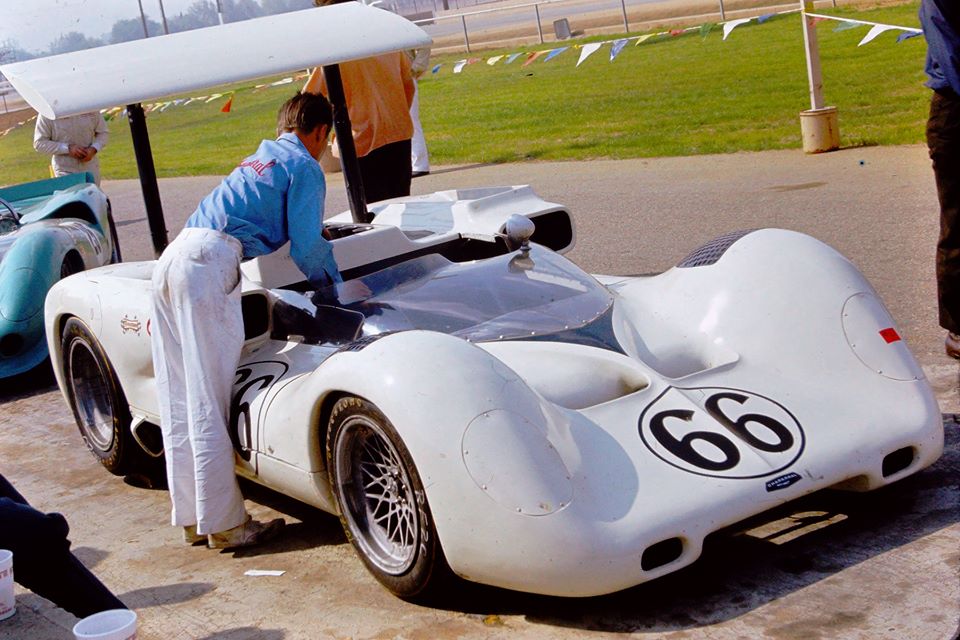
This is Part 1 of an unknown number of Parts of Dean Lester's incredible photo collection. The reason I'm so vague on the size of the collection, is because Dean is slowly rediscovering many of his old photos after several decades, and keeps making new discoveries. How big will it get? Who knows.
Dean was living in Lynwood, California, when he began taking motor racing photos in 1962. Initially his photos were limited to what he could achieve from behind the catch fencing and the from the grandstands at his local track, Riverside. He started out with a Minolta SRT101, but soon realized he needed a longer lens to properly capture the action, so upgraded with a Vivitar zoom. Over time, he got to know Les Richter, the Riverside track owner, which got him into far better places for capturing images, and he spent the next twenty years taking photos for Riverside.
But Dean also ventured far beyond Riverside, including Ontario Speedway, Laguna Seca, Willow Springs, Watkins Glen, Elkhart Lake, Edmonton, Las Vegas, Ascot, and numerous other venues, taking in drag racing, Can-Am, USRRC, Trans-Am, NASCAR, Formula 1, Formula 5000 events, and just about every other division being contested during the 1960s and early '70s. His photos have been published in Sports Car Graphic, Road And Track, Car And Driver, and Stockcar Racing, among others. Dean was also able to get some fantastic track and pit photos, which really capture the era perfectly.
This first part covers mostly USRRC and Can-Am events, largely because these are all Dean has so far rediscovered. For those who don't know, USRRC is the United States Road Racing Championship, created by the SCCA in 1963 for Group 7 sports cars. This was really the precursor to the Can-Am, and continued until 1968. Until the arrival of the Can-Am, the USRRC was probably the most important Group 7 sports car racing series in the world. Its demise really came about because of the Can-Am, as a smaller prize fund meant it didn't attract the superstars of the Can-Am. But it did allow some of the smaller teams to shine.
Anyway, I'll kick this off with various Can-Am and USRRC races, posted in no particular order, largely because this is how I've received them.
-
Administrator

One thing that jumps out, is that there are a LOT of photos of Lothar Motschenbacher, who Dean knew well. Lothar was a mainstay in the Can-Am, almost exclusively driving a red car, usually a McLaren, and virtually always with the #11. Lothar was a strong privateer in the series. Not only was he on the grid for the very first Can-Am race at St. Jovite, in 1966, he was also on the grid for the very last Can-Am race at Elkhart Lake, in 1974. He raced a McLaren M1B in 1966, before switching to a Lola T70 in 1967. He then switched back to a McLaren M6B in 1968, and remained loyal to the McLaren brand right to the end. Pictured here is the M6B he raced in 1968, in both USRRC and Can-Am.
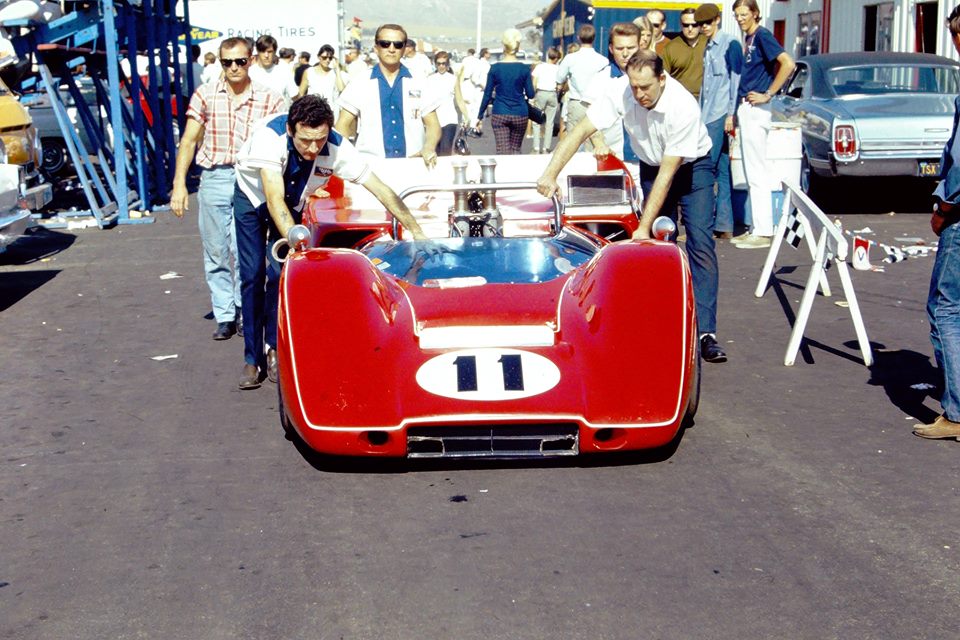
-
Administrator

1968 USRRC race at Laguna Seca, with Jim Hall in the Chaparral 2G alongside Motchenbacher. In the blue McLaren M6A on the second row is Mark Donohue.
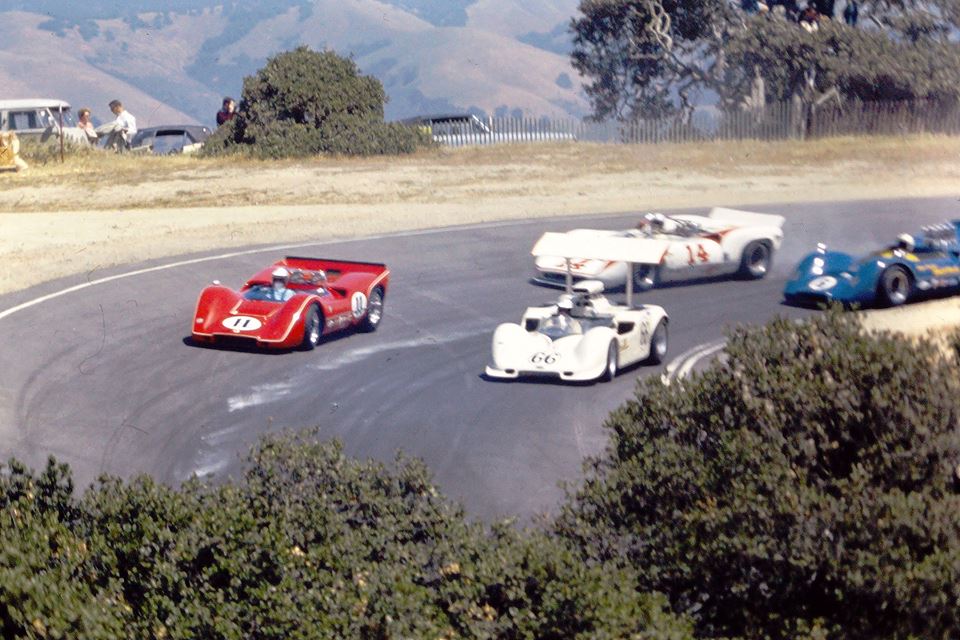
-
Administrator

This is likely Hap Sharp, in the second of the Chaparral 2As, in 1965. The track is more than likely Riverside.
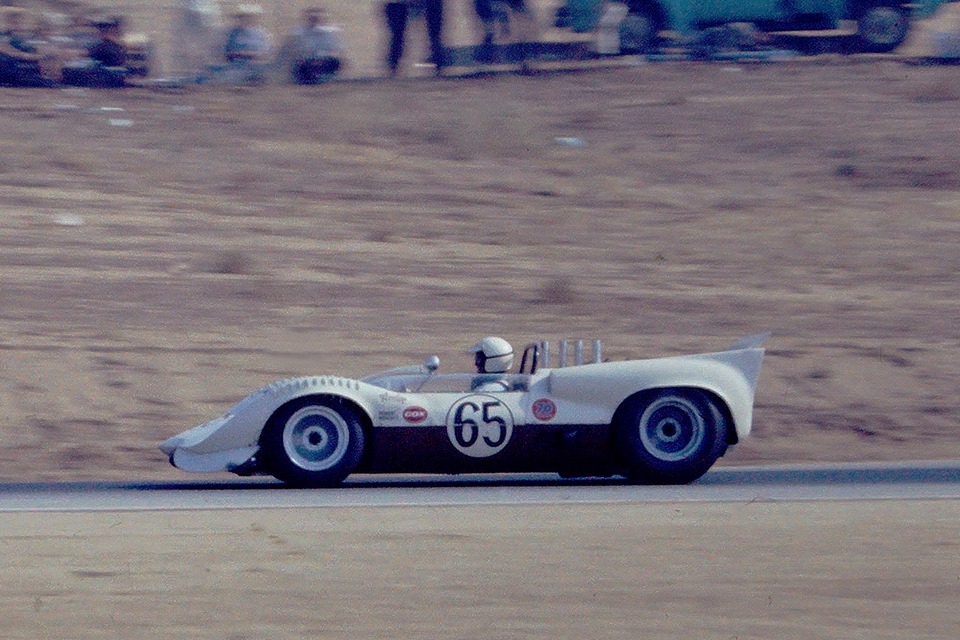
-
Administrator

Looks to be the Riverside pits. At left, with back to the camera, appears to be Parnelli Jones, talking to a very young Sam Posey, and Motschenbacher on the right.
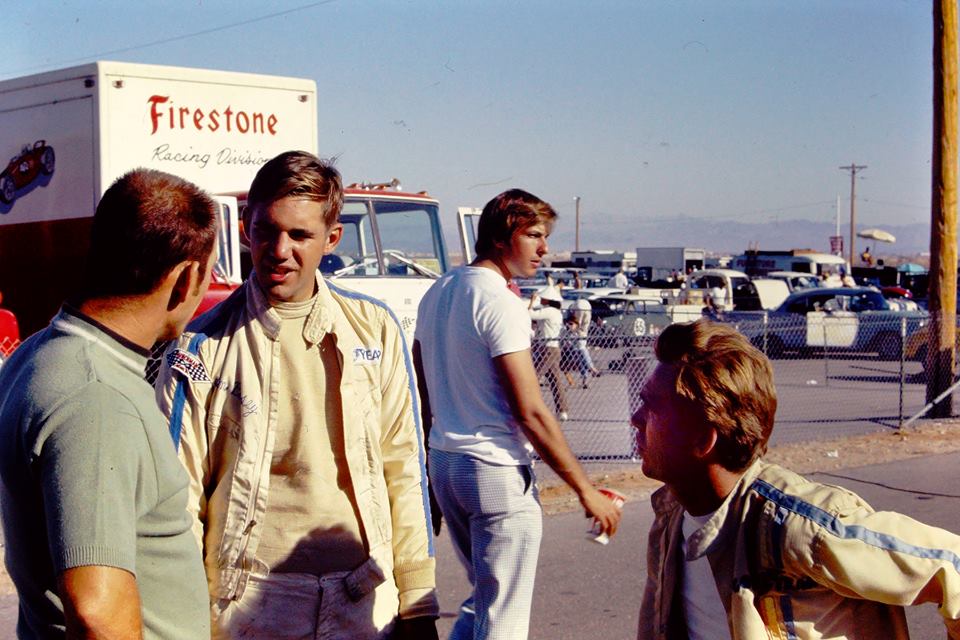
-
Administrator

Dan Gurney, sheltering from the rain in his McLeagle, his heavily modified McLaren M6B. This is likely the 1968 Laguna Seca Can-Am race. Thats Swede Savage, Gurney's young protege, kneeling in right of picture. Savage was tragically killed at Indy in 1973.
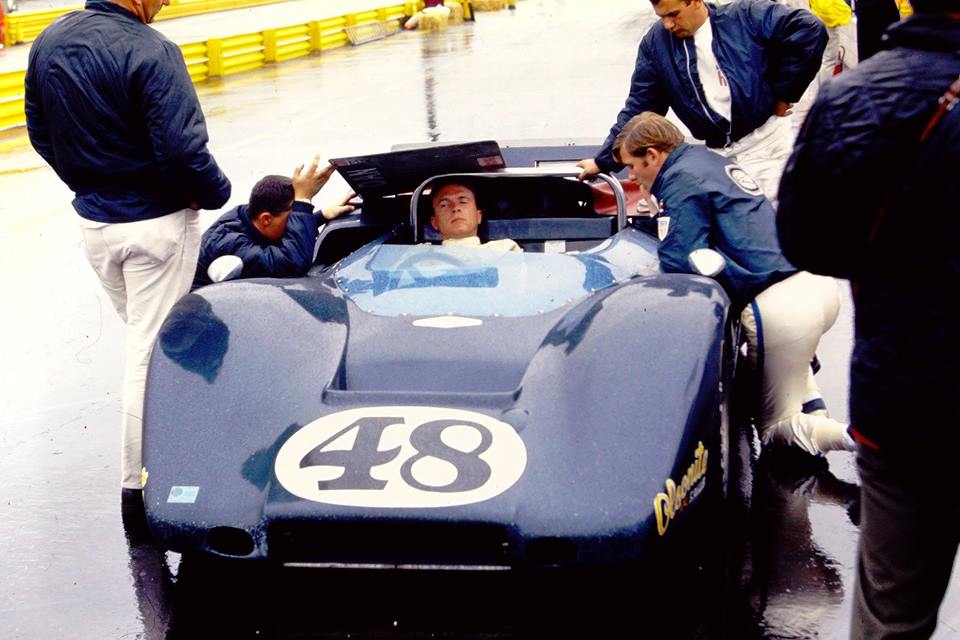
-
Administrator

Lothar and the Lola T70 he campaigned in 1967.
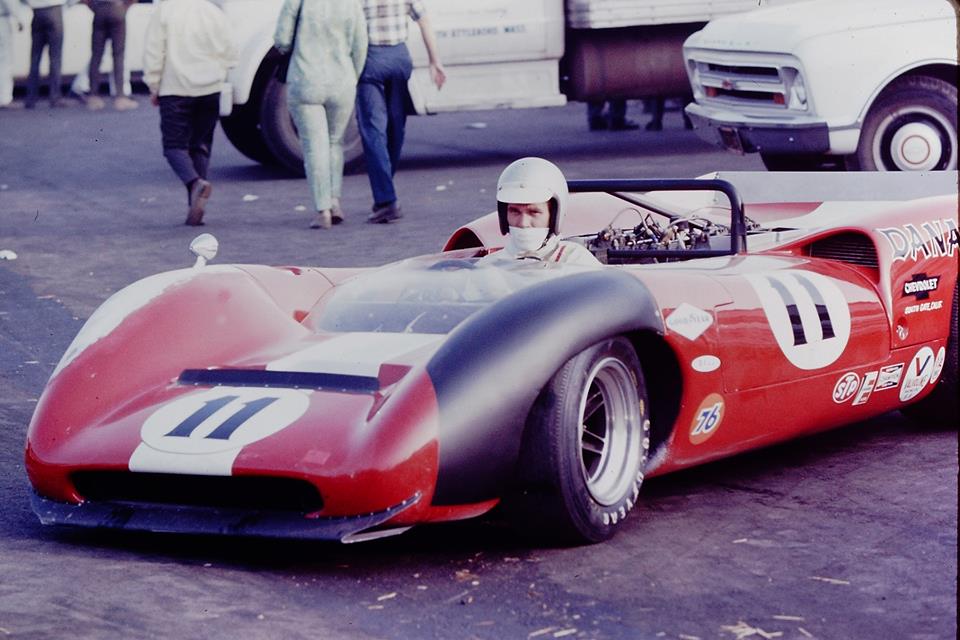
-
Administrator

Dan Gurney's Lola T70 from 1966. Gurney won the Bridgehampton round of the 1966 Can-Am. This photo also shows how Goodyear Bluestreak tyres got their name.
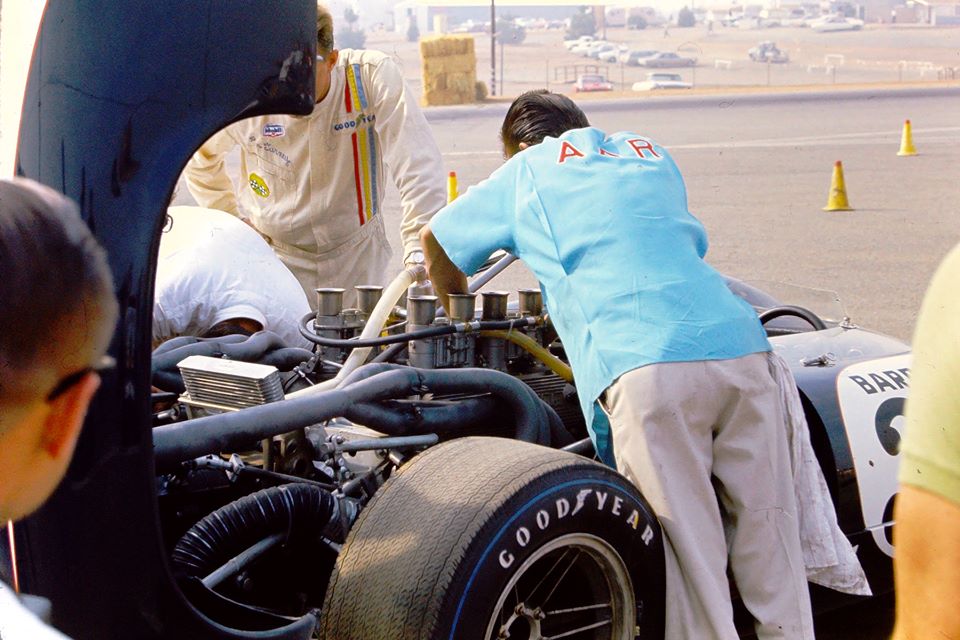
-
Administrator

Bruce.
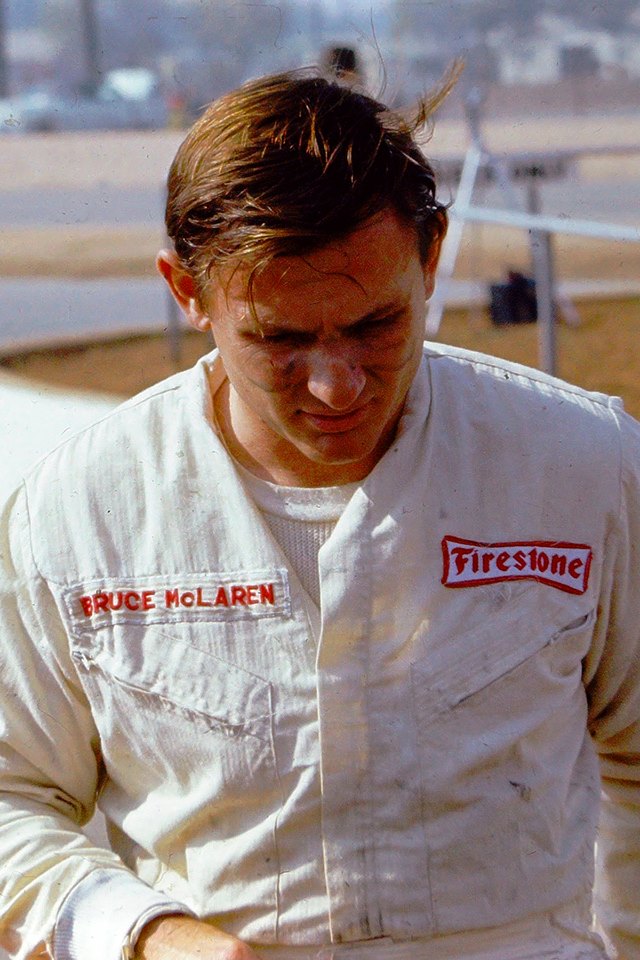
-
Administrator

Mike Goth's McLaren M1B. The Can-Am series was massively important to the early growth of the McLaren company. Not only did McLaren generate massive income through prize money and sponsorship, the company also contracted Peter Agg at the Elva/Trojan company to produce McLaren cars for selling to customers. McLarens success as a factory team meant customer sales were always strong, although Lola put up a good fight in the early years.
Note the tall rear spoiler on Goth's McLaren. Neat looking paint scheme too.
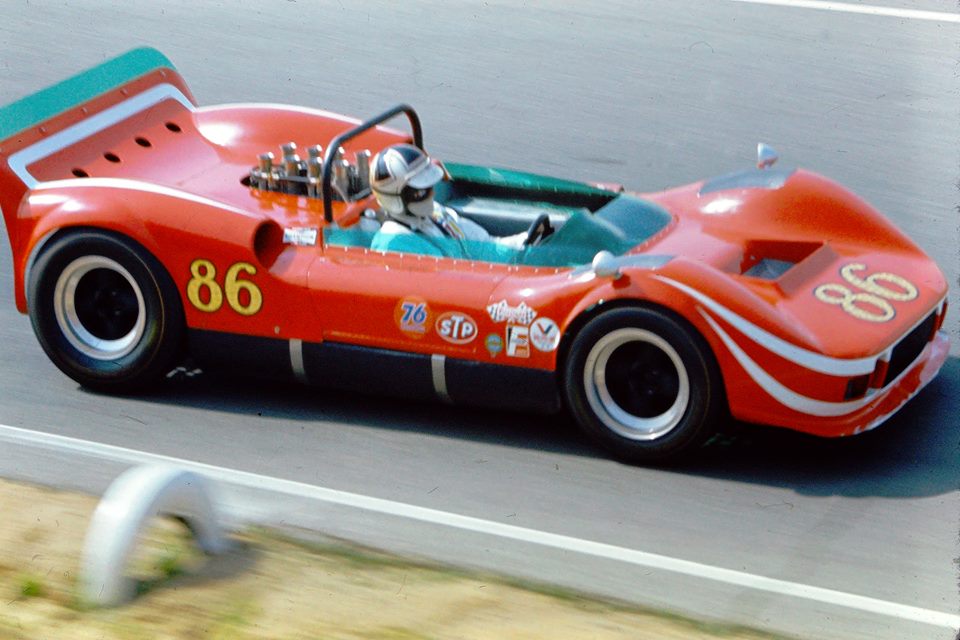
-
Administrator

Superb pit photo, likely at Riverside. It was really a big sand pit.
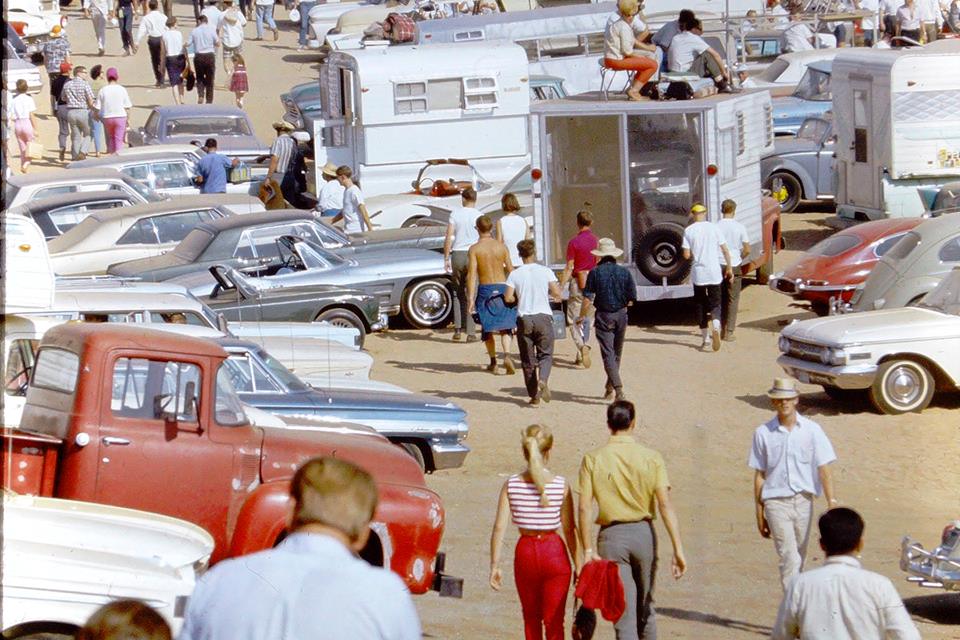
-
Administrator

How about that for a straight! Riversides long main straight also doubled as a drag strip. Sadly, its no more.
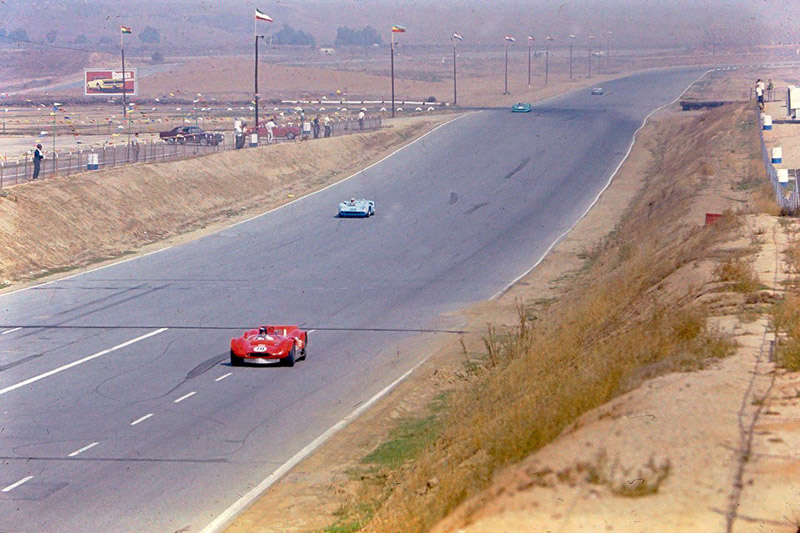
-
Administrator

Denny. The tall injector stacks in the background tell me this is 1968.
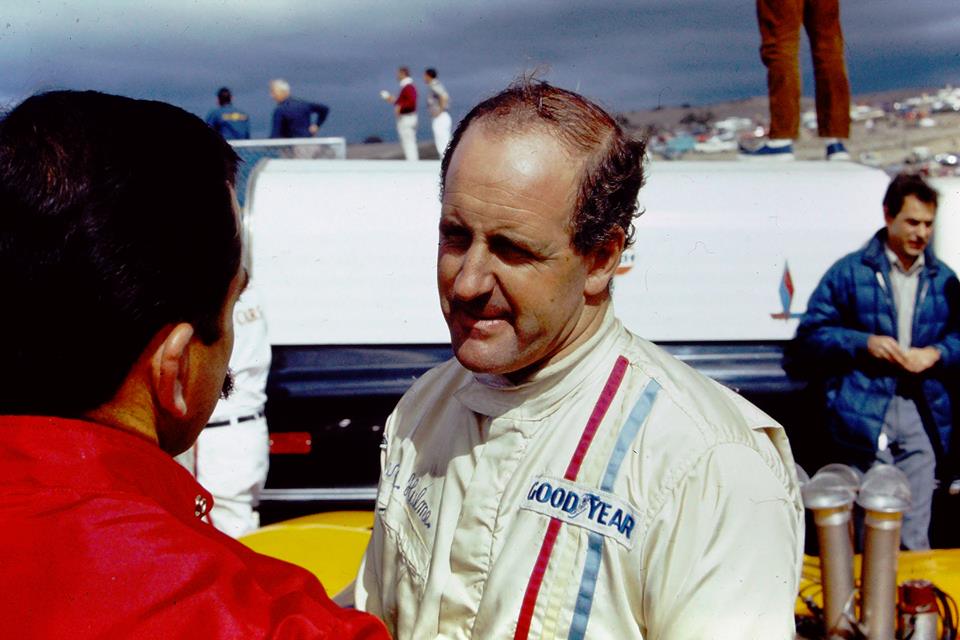
-
Administrator

In early USRRC events, it was common to see front engined cars competing, including Cobras, Corvettes, and Cheetahs. Although Bill Thomas originally planned that the Cheetah be a production car and compete against the Cobra, not enough cars were built, which forced them to run in Group 7 instead. This is the Clarence Dixon Cadillac Cheetah.
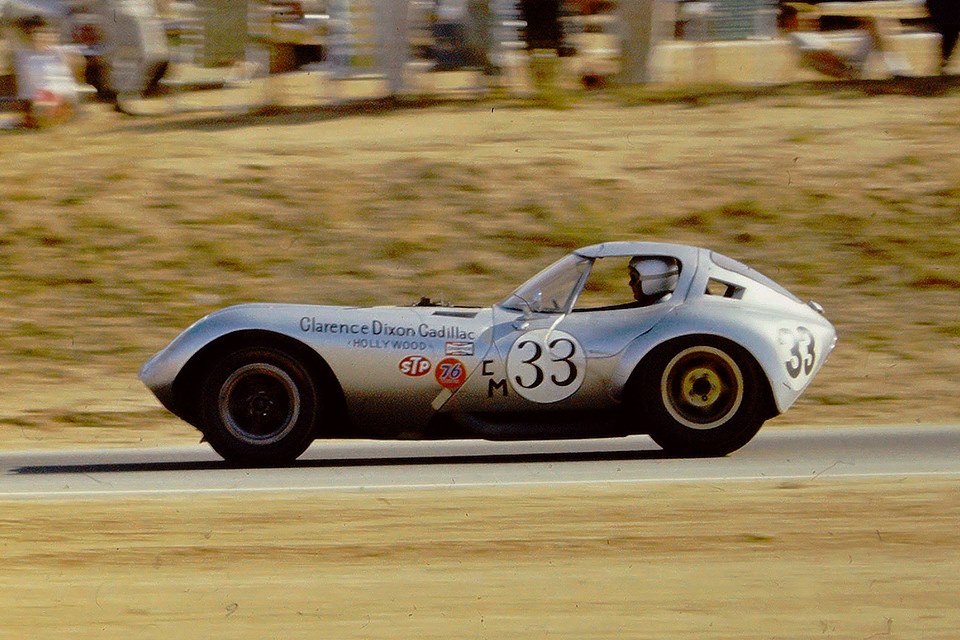
-
Administrator

Nice young lady cruises her Cobra through the pits.
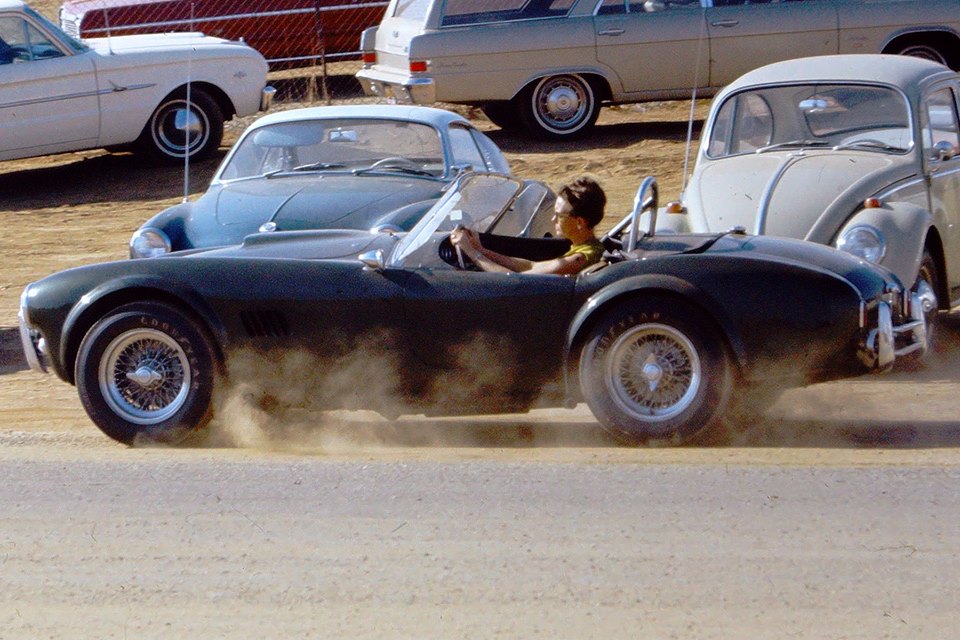
-
Administrator

OK, so in 1968, the McLaren team dominated the Can-Am series in their new M8As, with Denny Hulme eventually winning the championship in chassis M8A-2. In 1969, this car was retained by McLaren and updated to the high-wing 1969 guise and used as a spare by McLaren. It was driven by Dan Gurney to finish third at Michigan, behind McLaren and Hulme after his McLeagle broke, and was also driven by Chris Amon at Laguna Seca when his Ferrari broke. McLaren took over this car late in the season when he crashed his car, and won the 1969 Can-Am.
In 1970, it was sold to Lothar Motschenbacher, who painted it his traditional red with #11, and under the 1970 rules, had to remove the hub mounted rear aerofoil. Motschenbacher raced the car successful in the early 1970 rounds before wrecking it at Elkhart Lake. Then he switched back to the 1969 McLaren M12 customer car he raced in 1969, before ordering a new customer 1970 M8C.
My understanding is that although an M8B and M8C look quite similar, the 8C has much more rounded lower sides to the chassis tub, which makes me think this is the M8A-2 chassis he ran earlier in the season. That being the case, this is the car that ended up in New Zealand in the late 1970s, and eventually restored back to 1968 M8A guise by Duncan Fox and the Bruce McLaren Trust.
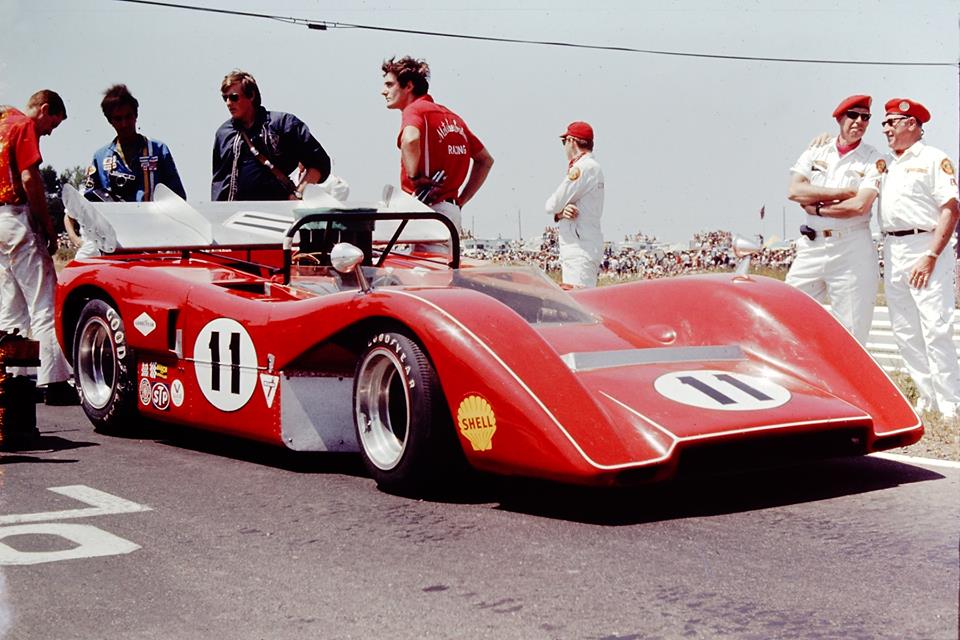
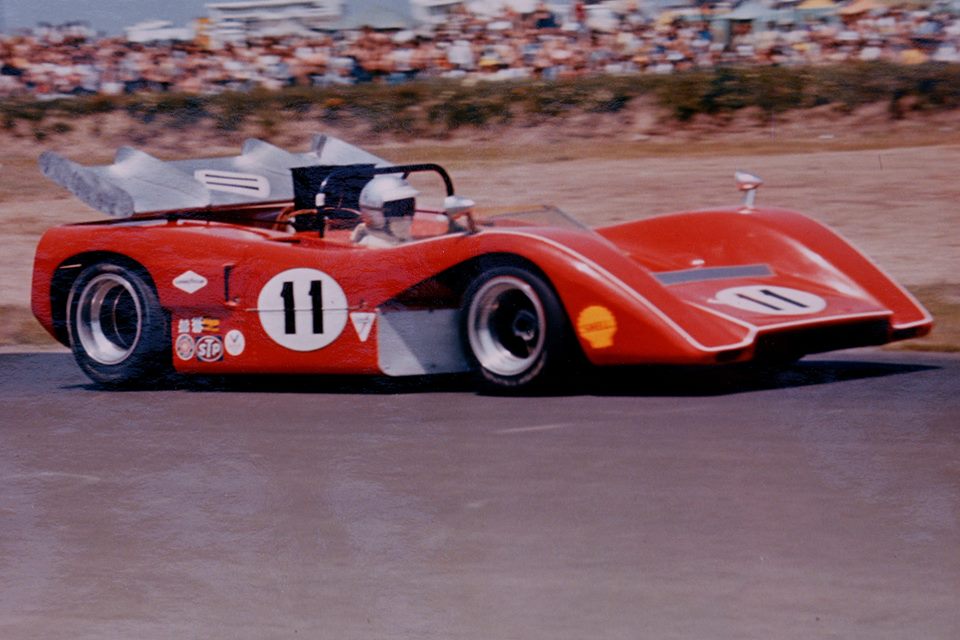
-
Superb shots, with a great mix of the personalities and the cars. Epic shots of Denny and Bruce.
-
Absolutely agree with Rhys, keep them coming Steve.
I remember at Long Beach in 1975 that Lothar Motschenbacher, had loaned his truck and trailer to Teddy Yip for us to use with the Theodore Race Team.
Great comeradrie back then.
Ken H
-
Semi-Pro Racer

Fantastic pics and terrific read Steve, really enjoying it. It was such a great era of drivers, racing and development.
Cheers
-
This is superb, photos awesome and great write up and history. Look forward to it.
 Posting Permissions
Posting Permissions
- You may not post new threads
- You may not post replies
- You may not post attachments
- You may not edit your posts
-
Forum Rules




 Reply With Quote
Reply With Quote
